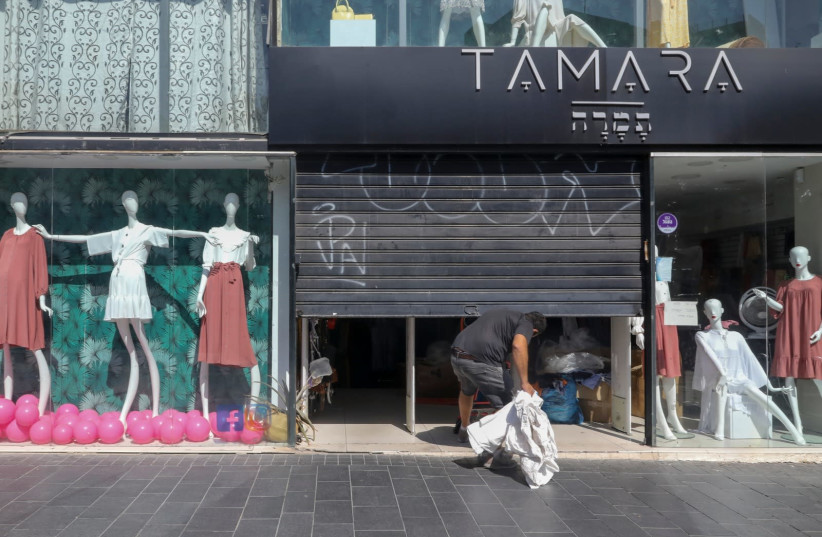Israel has experienced a 50% rise in calls to the “ERAN” hotline – the country’s official mental health hotline – since the onset of the COVID-19 pandemic, according to a report by ERAN - The Israel Association for Emotional First Aid.
Calls to the hotline rose to 305,749 inquiries in 2021 compared to 204,053 inquiries received in 2019 – an increase of almost 50%.
According to the report, ERAN volunteers responded to 305,749 distress inquiries in 2021 – an average of 25,480 inquiries per month – which equals about 850 inquiries per day and 35 inquiries per hour. Some 9,172 of the 25,480 inquiries (36%) were identified as having suicidal content, of which 920 led to action by its volunteers.
"It is the mental resilience of the citizens of Israel that will determine our future and the future of every family and home. Many times there are quite distresses in schools and institutions that parents are unaware of and cannot pay attention to. Such attention would have prevented much mental anguish,” said MK Idit Silman, who chairs the Knesset’s Health Committee.
“As part of the committee that focuses on promoting and treating mental health in Israel, I have been working to promote awareness of the issue from an early age," she said. "Every conversation, speaking early and raising mental resilience will prevent serious hardships afterward."

A majority of complaints centered around acute mental stress (depression, anxiety, stress, etc.) with over 85,000 inquiries to ERAN centered around them. Loneliness was also commonly cited in inquiries, with over 85% of callers saying loneliness was taking a mental toll.
"What worries us are those people who are in distress on the edge and can get help at the 1201 hotline and they do not call… We physically take three people off the roof every day, and those are huge numbers,” explained ERAN CEO David Koren.
Even more worrying was the increase in calls to ERAN from adolescents, which also saw a massive spike since 2019. Some 58,092 young people aged 24 or less called the hotline this year, a 45% increase from the end of 2019 – before the onset of the COVID-19 pandemic.
"The report points to the growing need for available and accessible mental first aid 24 hours a day, 365 days a year,” said Dr. Shiri Daniels, the professional director for the organization: “To educate and allow them to experience and practice essential assistance skills for the digital age in which we live and to be educators – and in the future, become relevant and attentive counselors."
Established in 1971, the ERAN mental health hotline deals with cases of trauma, depression, economic distress, teen challenges, loneliness, violence, abuse, eating disorders, self-image and sexual identity, difficulty in raising children, distress of Holocaust survivors, anxiety and more. The organization provides support in multiple languages and has special numbers for minority groups, such as Russian immigrants or Israeli Arabs.
Eran can be reached by phone and message via their site.
